The Walking Assessment (Bronze) £150
This includes:
- 60 minute appointment length
- Discussion of pain/injury
- Range of movement & strength testing
- Static posture analysis
- ½ meter walking pressure plate testing
- Treatment plan put in place
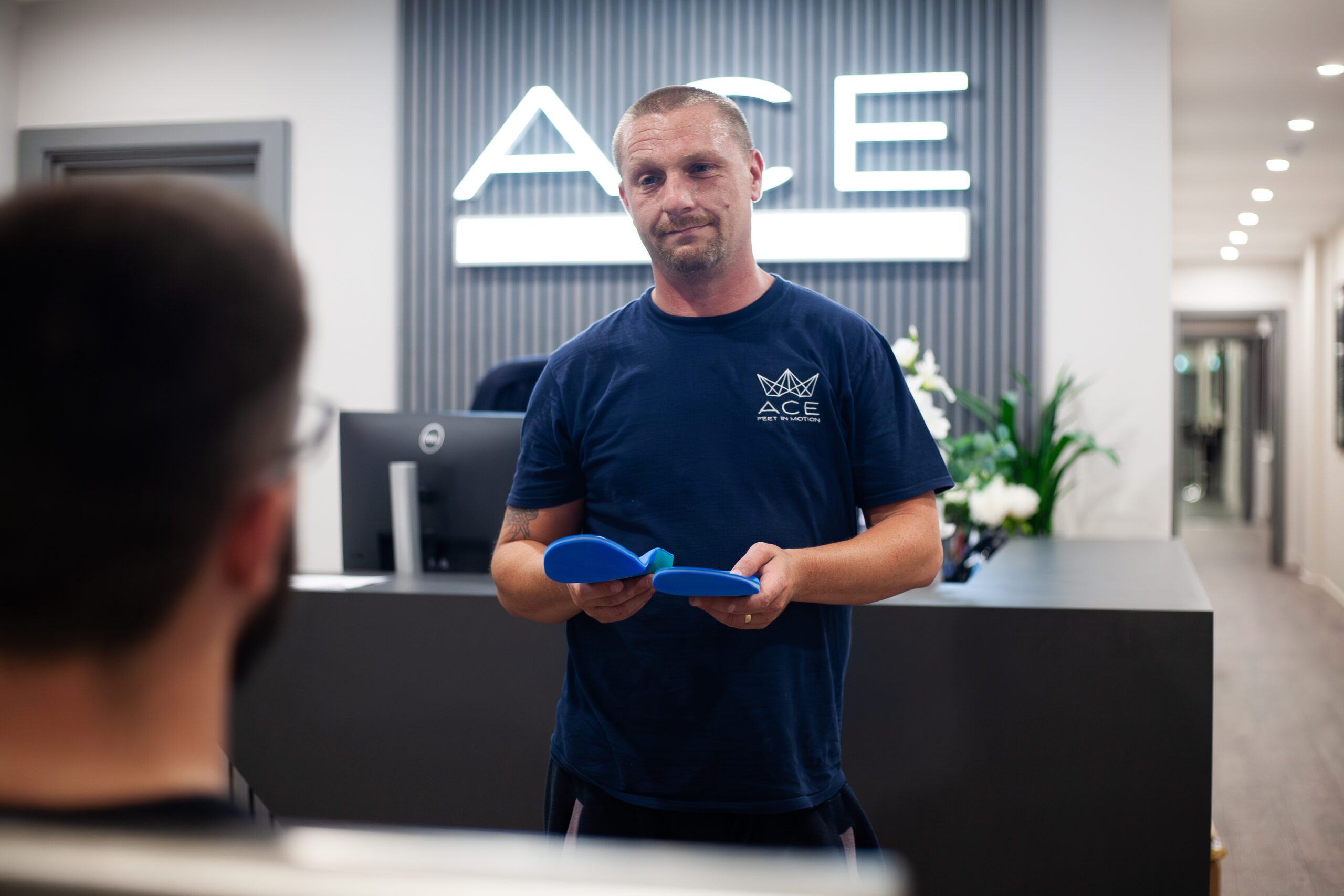
Orthotic therapy is the issuing of prescription insoles to assist with a pain or injury.
Book an appointmentAt ACE we utilise insoles as a way to reduce load on certain tissue, for example, if you a suffering with pain in a tendon in the ankle, an insole will be used to assist the tendon with it’s job, thus reducing load on it. We view the majority of insoles that we use as short term (6-12 months) and run a strength and rehabilitation programme alongside their use to get you back on your feet and active again as soon as possible.
For certain conditions like tendon dysfunction or bony issues and insole may be needed for the long term. This is something that will be explained at depth during any appointment.
Functional foot orthoses (insoles) are used to either reduce load, absorb or redistribute pressure, address biomechanical findings. Insoles have different purposes for different problems:
Insoles are used to reduce load on the affected tissue. They will often be used in a combination with a rehab programme to improve tissue capacity/recovery.
Used to reduce pressure on areas where corns/callus or breakdowns occur.
If a tendon has passed the point of functioning properly then a long term insole might be needed to help replace the function of the damaged tendon. These will often be a long term intervention.
Orthoses can be used to improve support and reduce excessive movement in the foot and ankle.
Insoles can be utilised to reduce mobility or rotation on certain bones and joints. They can also be used to reduce limb length discrepancy if needed.
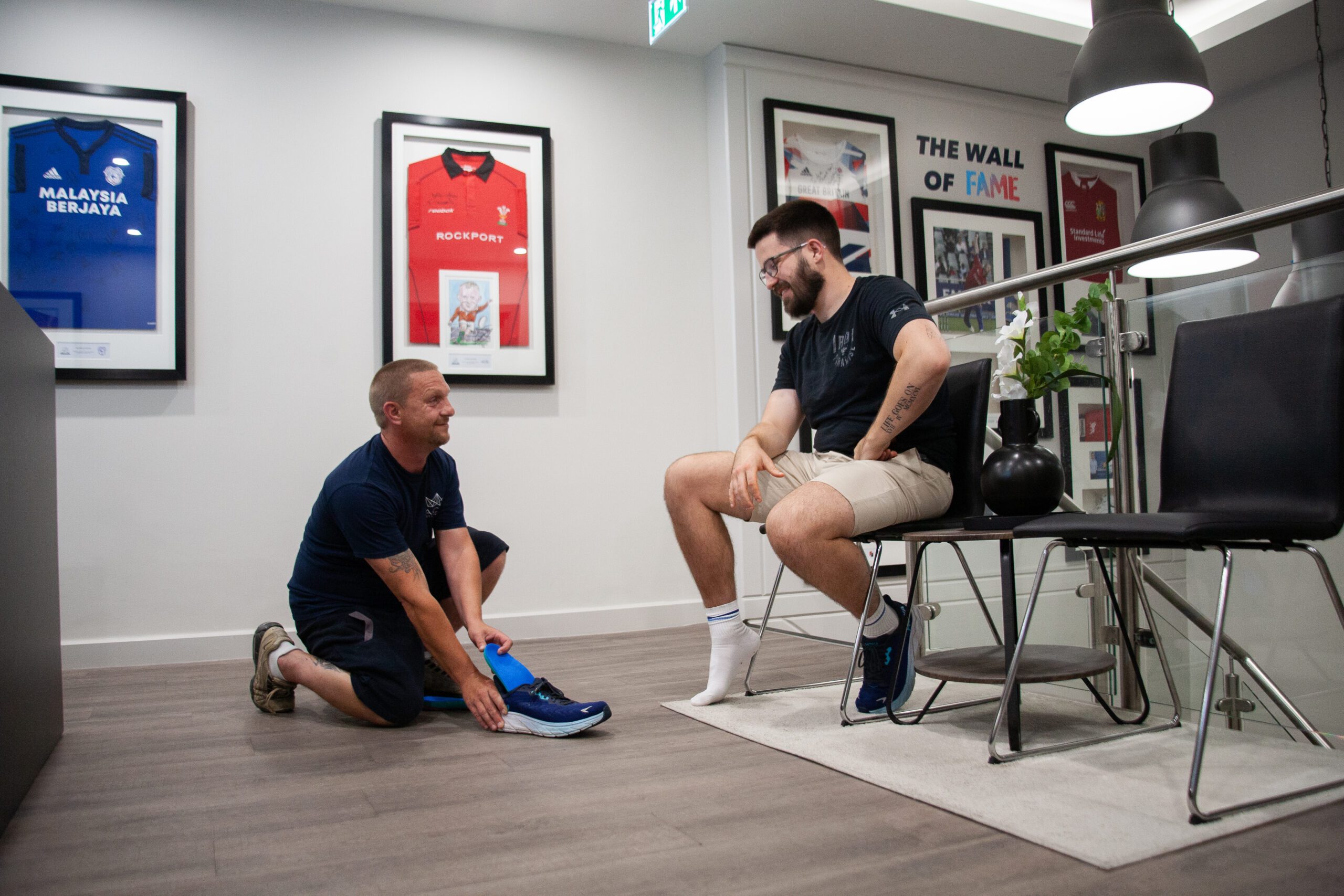
With over 20 years of manufacturing experience we have designed our own range of modular insoles. A modular insole starts with a pre-made support (around an ideal) and then your prescriptive needs will be added to the insoles e.g. corrective postings, increased cushioning, support etc. This type of insole is very effective when treating many common conditions and can be made and issued DURING YOUR APPOINTMENT.
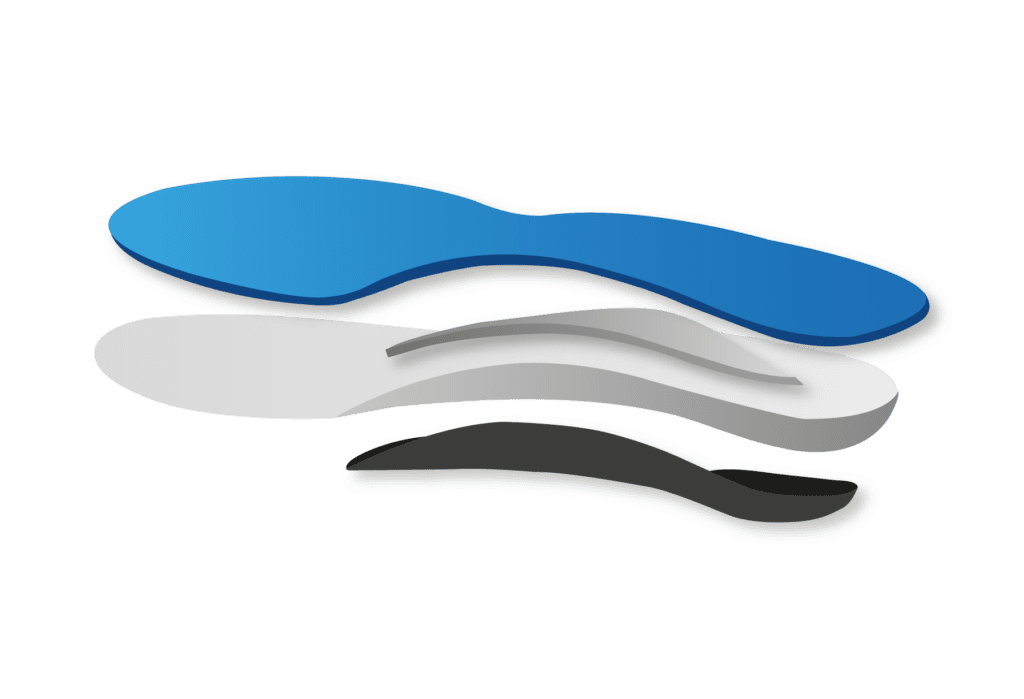
A bespoke insole is made from your unique foot profile which needs to be captured during your appointment. The most common ways of capturing your foot shape are slipper casts, impression box or 3D scans. Once your foot has been captured we then need to decide on what the base is made from:
EVA CADCAMs
Made from EVA (rubber) these insoles are designed and manufactured with the aid of computer software. These devices are tolerated well by patients and are great with more active sporty patients.
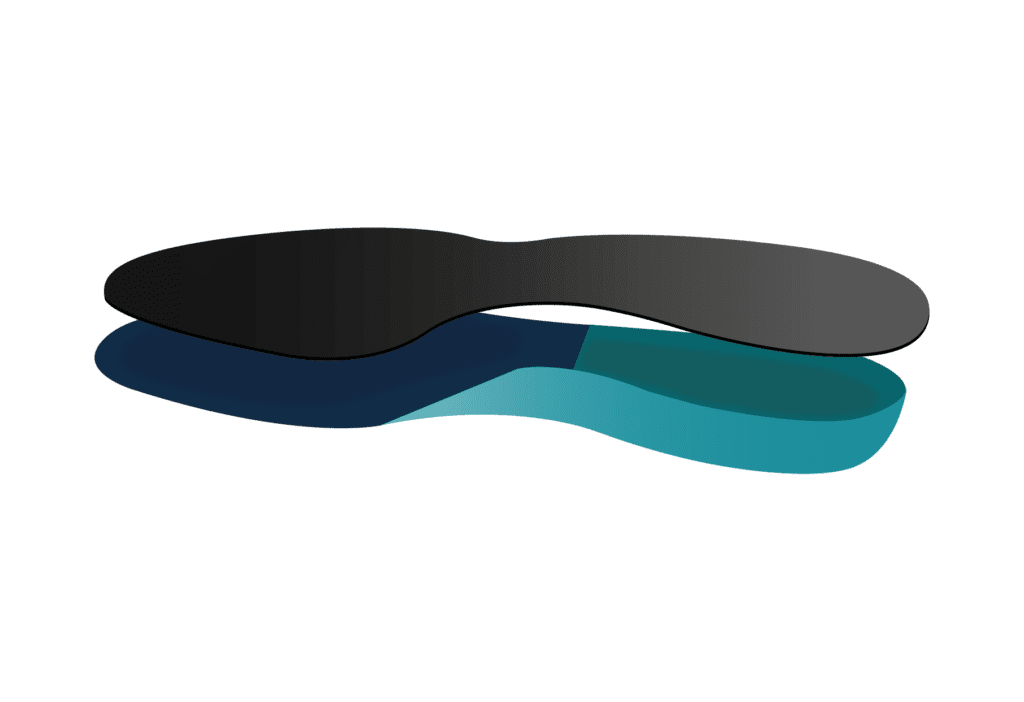
Polypropylene
Made from a polypropylene (plastic) these devices are usually firmer but often lower profile than the EVA insoles. We tend to use these if more control or correction is needed.
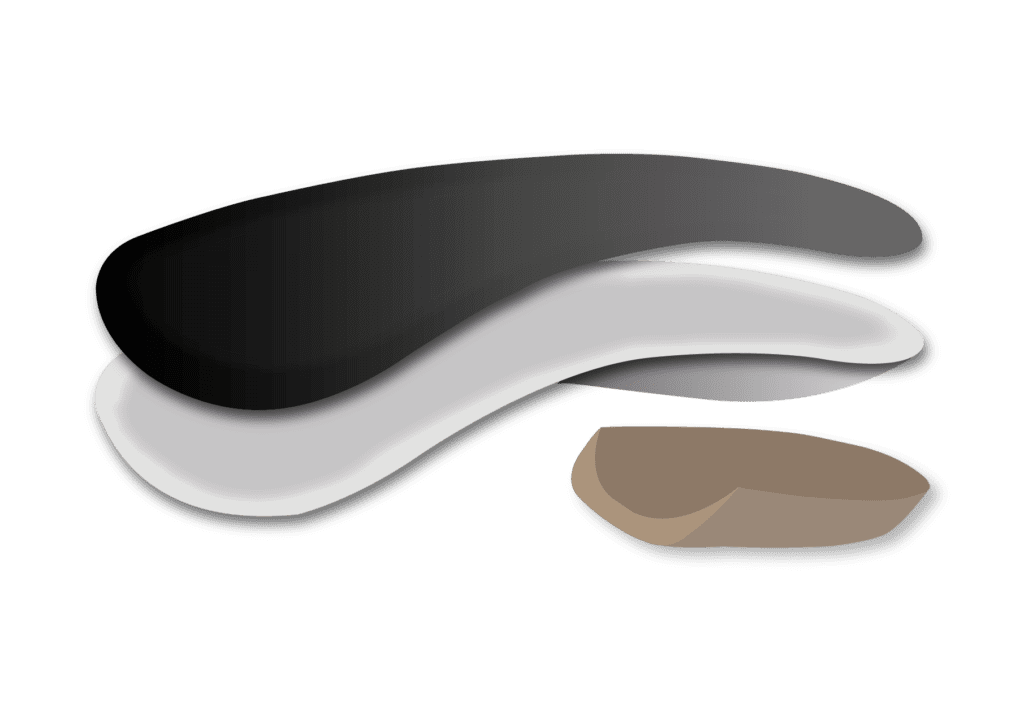
Carbon Fibre
These are usually lightweight and very firm. For those patients with very limited space in footwear of in need of a lot of control these are very good.
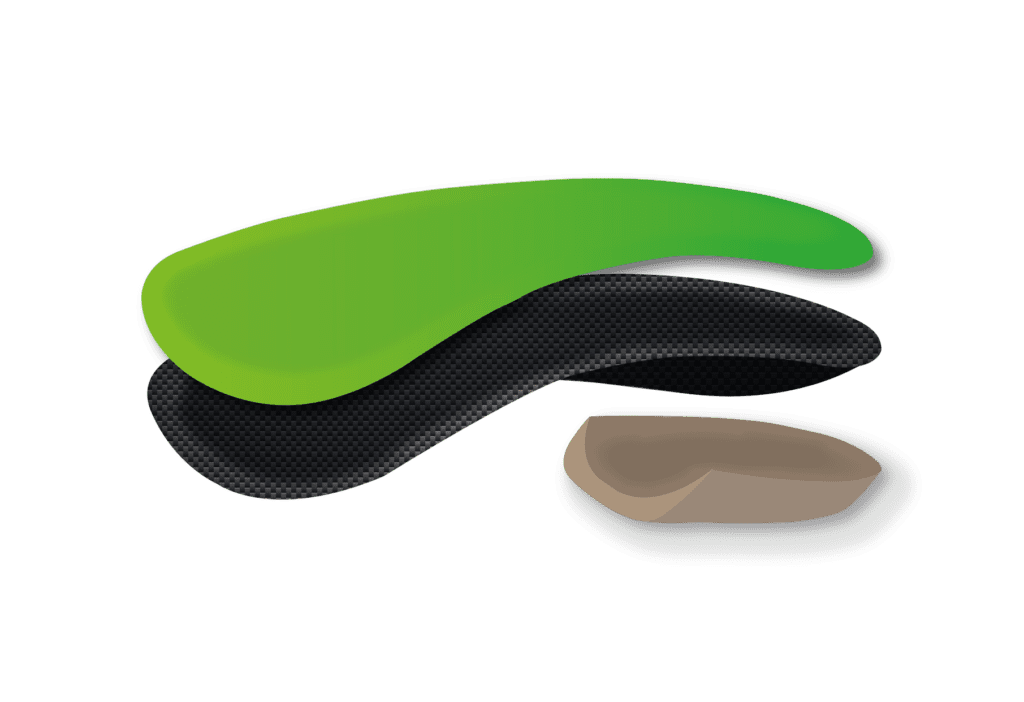
*if insoles are needed the podiatrist will discuss what options are available during your appointment*
If you believe insoles could help you follow this guide on how to get booked in.
Book an appointmentBook in for a foot and lower limb injury assessment. A detailed assessment will be carried out to determine whether insoles would be beneficial.
If insoles are needed then the musculoskeletal podiatrist will build a prescription from the detail collected during your assessment.
Once the type of insoles has been decided then the insoles can be made. Modular insoles can be made and issued during your appointment (Cardiff HQ only), whereas custom made insoles can take up-to 10 working days to be manufactured.
At our Cardiff headquarter we offer an insole fitting service. This service is used for both modular and bespoke.
In order to be prescribed insoles, you are required to book in for an assessment via one of the options below.
This includes:
This includes:
This includes:
This includes:
Our HCPC Registered Podiatrists have spent a minimum of 3 years at university studying towards a BSc in Podiatry.
If you are an existing patient of ours and are looking to purchase an extra or replacement pair of insoles get in touch with our friendly admin team and they will be able to arrange that for you.
Below we have answered some frequently asked questions we regularly get at our clinics prior to your appointment.
Your podiatrist will discuss this in depth during your appointment. You will also have full control over what you end up with.
The cost of insoles is based largely around the cost of material and the labour that goes into making them. For a full price list click here.
This question is always difficult to answer because there are many factors to consider such as level of activity, foot type and body weight. As a general rule of thumb we say that modular insoles will last 12-18 months, EVA CADCAMs 18-24 months, plastic and carbon fibre 36 months +.
It’s completely up to you how many pairs you have. Insoles can be designed to be easier to inter- change, however certain footwear may be prioritised by the podiatrist. As private patients you can have as many as you like.
It is very important that these are hand washed only! The glues and materials are sensitive to heat so avoid washing machines, tumble dryers or direct heat from radiators.